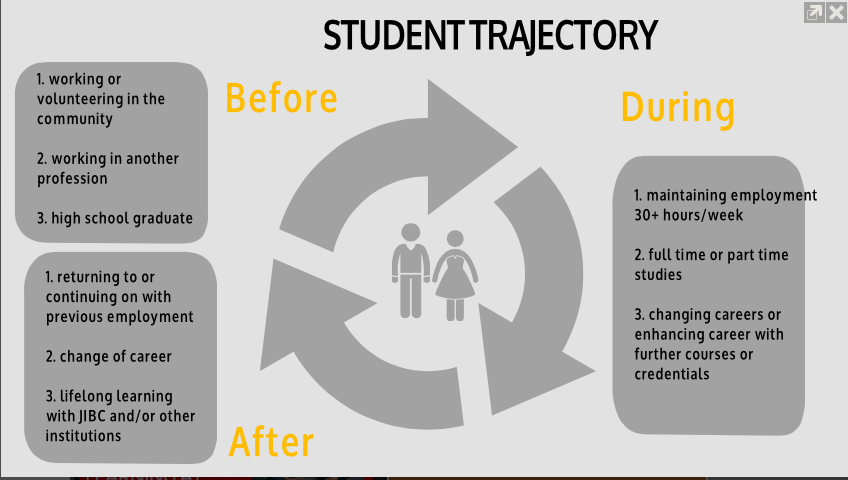OpenEd Week @KPU

Photo CC-0
I had the privilege of being one of the keynotes at KPU’s Open Education Week, a fantastic day that was co-organized by KPU, UBC, Douglas, SFU, and BCIT. There is nothing better than following a student keynote, and Aran Armutlu kept our attention on the things that matter in open…students and affordability of higher education, while also touching on the impact of open pedagogy. He talked about his first experience as a student discovering his course used a zero cost textbook and since the instructor, Jennifer Kirkey was also in attendance it was a really nice shout out to instructors doing good work and the impact it has on students.
Here’s a bit about Aran and the work that he’s done with the BCFS.
Aran Armutlu, Chair of the BC Federation of Students
Aran is the Chairperson of the BC Federation of Students which represents over 130,000 students at 13 different colleges and universities across BC. The BCFS advocates for high-quality, accessible public post-secondary education in BC. Aran is a Douglas College graduate who is passionate about higher education and empowering youth to use their agency to create change. You can find Aran sharing his thoughts on the above topics and more on Twitter at @AranTheArmenian.
I followed up with a short presentation on the landscape of research on open in BC. This is a more condensed version of a recent blog post I did for BCcampus and although I had prepped myself for the inevitable missing of key research being done on open in BC and I learned about some great work on open scholarship being done at the University of Victoria including this fantastic collection.
Creative Commons Licenses provide a clear and well recognized mechanism for making one’s work open. This session will begin by outlining the basics of CC Licenses, their relationship to copyright, and what one should consider when selecting an appropriate license. The second half of the session will introduce attendees to the complexities of opening up certain types of materials, including cultural materials. In particular we will discuss Traditional Knowledge Labels, which have been developed to help indigenous communities exert access control over cultural materials that may be in public circulation.
Just when you think you know a fair bit about Creative Commons licenses, a group of librarians come along and teach you something new. The session by Stephanie Savage, Karen Meijer-Kline, Lindsay Tripp, Michael Wynne was a crash course in some of the nuances of CC licenses (including the clarification that tuition charging institutions can use CC NC content.
Note to All – Non-Commerical CC Licenses CAN be used by education institutions that charge tuition. #openinaction— Erin Fields (@Emefie) March 6, 2019
There was also considerable time (but never enough) dedicated to TK Licenses which are not only beautiful but provide such a critical extension or alternative to Creative Commons licenses. In this session I was intrigued by the relationship building opportunity that CI labels could provide as well as the introduction to Murkutu, an open source CMS for sharing digital heritage.
Put a License On It – Table Sessions
Have a presentation, paper, a guide, or an image you own? Make it openly available! Put a license on it! For this session we will build upon what you have learned about Creative Commons and work to put licenses on content you’ve created. Join table facilitators to learn about the practical application of putting open licenses on your resources and how to share them.
This was a really relaxed way to tackle something I hadn’t done in 14 years and took approximately 10 seconds to do…put a license on this blog! (Hint…go to Creative Commons license chooser and grab the embed code). At my table I learned some other tips and tricks including this attribution builder.https://www.openwa.org/attrib-builder/
Institution Spotlights (UBC, BCIT, SFU, KPU, BCcampus)
Too much to say here, but a theme in the institutional updates is the importance of faculty bringing faculty, faculty telling faculty as awareness raising with OER.
Finding, Using, and Creating Open Education Resources – Will Engle, Erin Fields
With the proliferation of open education resources on the web, the practice of finding, evaluating, using, and remixing videos, simulations, test banks, presentations, and other materials is a skill that can help support instructors and students in their teaching and learning. There are millions of openly licensed resources, from full courses and textbooks to tests banks and images, that are available for others to freely use. This session will provide an overview of the tools available for finding, using, and creating Open Education resources.
For me this session was so much more than as described here. I came away with a few nuggets that the presenters planted in my brain:
First: open enrollment is open pedagogy. This should be so glaringly obvious for me given my love for open universities, but I’d honestly never considered this. Second: taking the time to reflect on what we are asking students to do when they work in the open…I have to admit I haven’t gone deep enough in my thoughts about this.
***The combination of slides and speaker notes from this session was so informative that it could have been written up as a how-to guide on considerations for and doing open pedagogy.
Open Education Resources – Table Sessions
Join table facilitators to learn about different open education approaches and technologies, including:
Pressbooks
Open Repositories
Hypothesis
Open Monograph Press
Open Journal Systems
H5P
WordPress/Wiki
Integrating Open Pedagogy into teaching practices
I attended the Open Monograph Press, which is actually another Public Knowledge Project tool that sits along side the Open Journal Systems software (which I referenced in my keynote). This is a beautiful, but perhaps not well known tool for creating conference proceedings and edited volumes by facilitating the workflow process.


